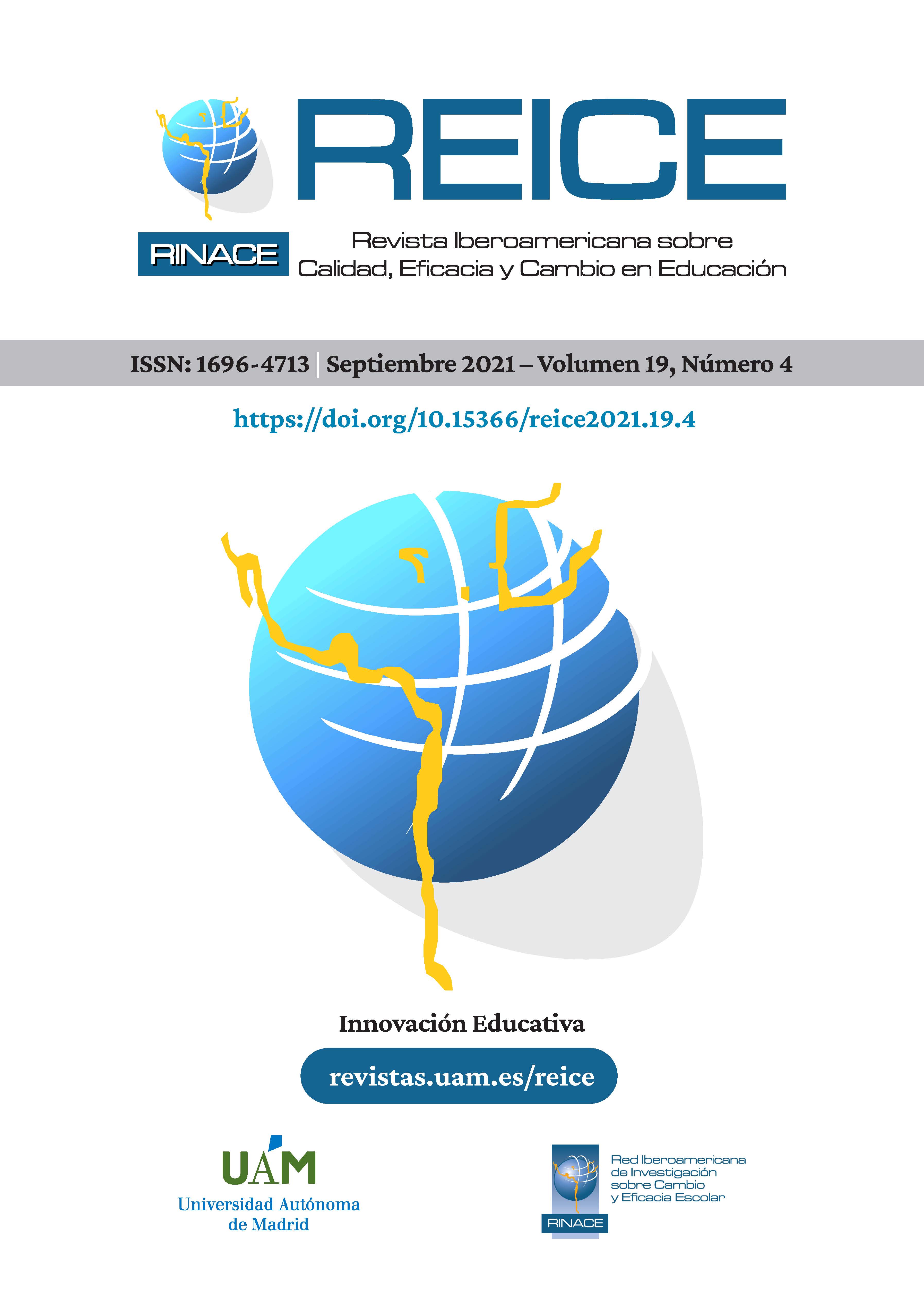Innovación Tecno-Educativa “Google”. Plataformas Digitales, Datos y Formación Docente
Palavras-chave:
Innovación educativa, Tecnología educativa, Plataformas digitales, Datos, Formación de docentes
Este trabalho encontra-se publicado com a Licença Internacional Creative Commons Atribuição-NãoComercial-SemDerivações 4.0.
Resumo
Las plataformas digitales están generando los avances más significativos en la innovación educativa global. La pandemia mundial de Covid-19 está acelerando la expansión de las plataformas digitales en educación. Google es la corporación tecnológica que, a través de Google for Education, está liderando la innovación educativa mediante sus plataformas digitales. A partir de este contexto, el objetivo del presente artículo es analizar la innovación en las prácticas educativas y en la formación del profesorado, a través de las plataformas digitales de Google. Desde un enfoque cualitativo basado en la implementación de una etnografía digital y una tecnografía, se han analizado en profundidad ocho sitios web de Google que tienen relación con la formación docente y los datos. Los resultados del estudio muestran que, a través de la API de Classroom, se están generando (1) nuevos procesos de control tecno-educativo, (2) nuevas dinámicas extractivas de los datos y (3) nuevas relaciones rentistas con la industria tecnológica. Junto a ello, se observa que la formación docente para la innovación tecno-educativa en Google se basa en un desarrollado profesional piramidal mediante certificaciones docentes, y en “comunidades educativas Google” que se auto-forman y expanden las herramientas y las lógicas de mercado de la corporación tecnológica.
Downloads
Referências
Birch, K. (2019). Technoscience rent: Toward a theory of tentiership for technoscientific capitalism. Science, Technology, & Human Values, 45(1), 3-33. https://doi.org/10.1177/0162243919829567
Birch, K., Chiappetta, M. y Artyushina, A. (2020). The problem of innovation in technoscientific capitalism: Data rentiership and the policy implications of turning personal digital data into a private asset. Policy Studies, 41(5), 468-487. https://doi.org/10.1080/01442872.2020.1748264
Bucher T. (2016). Neither black nor box: Ways of knowing algorithms. En S. Kubitschko y A. Kaun (Eds.), Innovative methods in media and communication research (pp. 81-89). Palgrave Macmillan. https://doi.org/10.1007/978-3-319-40700-5_5
Bucher, T. (2018). If...then: Algorithmic power and politics. Oxford University Press.
Couldry, N. y Mejias, U. A. (2019). Data colonialism: Rethinking big data’s relation to the contemporary subject. Television & New Media, 20(4), 336-349. https://doi.org/10.1177/1527476418796632
Decuypere, M., Grimaldi, E. y Landri, P. (2021). Introduction: Critical studies of digital education platforms. Critical Studies in Education, 62(1), 1-16. https://doi.org/10.1080/17508487.2020.1866050
Google. (2021a). Google classroom. https://edu.google.com/intl/en-eu/products/classroom/
Google. (2021b). API-classroom-authorizing requests. https://developers.google.com/classroom/guides/auth
Google. (2021c). API-classroom-manage. https://developers.google.com/classroom/guides/manage-guardians
Google. (2021d). Apps that work#withClassroom. https://edu.google.com/intl/en-eu/products/classroom/apps/
Google. (2021e). Google for education. https://edu.google.com
Google. (2021f). Teacher center. https://edu.google.com/intl/en-eu/teacher-center/?modal_active=none
Google. (2021g). Google for education-partnes. https://edu.google.com/partners/
Google. (2021h). Google for education-communities. https://edu.google.com/latest-news/communities/
Groß, C. y Vriens, D. (2019). The role of the distributor network in the persistence of legal and ethical problems of multi-level marketing companies. Journal of Business Ethics, 156(2), 333-355. https://doi.org/10.1007/s10551-017-3556-9
HolonIQ. (2021). Global EdTech unicorns. https://www.holoniq.com/edtech-unicorns/
Ideland, M. (2021). Google and the end of the teacher? How a figuration of the teacher is produced through an ed-tech discourse. Learning, Media and Technology, 46(1), 33-46. https://doi.org/10.1080/17439884.2020.1809452
Jansen, K. y Vellema, S. (2011). What is technography? Wageningen Journal of Life Sciences, 57(3-4), 169-177. https://doi.org/10.1016/j.njas.2010.11.003
Jasanoff, S. y Kim, S.-H. (2009). Containing the atom: Sociotechnical imaginaries and nuclear power in the United States and South Korea. Minerva, 47(2), 119-146. https://doi.org/10.1007/s11024-009-9124-4
Komljenovic, J. (2021). The rise of education rentiers: Digital platforms, digital data and rents. Learning, Media and Technology. https://doi.org/10.1080/17439884.2021.1891422
Latour, B. (2005). Reassembling the social: An introduction to actor-network-theory. Oxford University Press.
Lindh, M. y Nolin, J. (2016). Information we collect: Surveillance and privacy in the implementation of google apps for education. European Educational Research Journal, 15(6), 644-663. https://doi.org/10.1177/1474904116654917
Means, A. J. (2018). Platform learning and on-demand labor: Sociotechnical projections on the future of education and work. Learning, Media and Technology, 43(3), 326-338. https://doi.org/10.1080/17439884.2018.1504792
Moore, A. y Clarke, M. (2016). Cruel optimism: Teacher attachment to professionalism in an era of performativity. Journal of Education Policy, 31(5), 666-677. https://doi.org/10.1080/02680939.2016.1160293
Morozov, E. (2015). To save everything, click here: The folly of technological solutionism. PublicAffairs.
Perrotta, C., Gulson, K. N., Williamson, B. y Witzenberger, K. (2021). Automation, APIs and the distributed labour of platform pedagogies in Google Classroom. Critical Studies in Education, 62(1), 97-113. https://doi.org/10.1080/17508487.2020.1855597
Pink, S., Horst, H., Postill, J., Hjorth, L., Lewis, T. y Tacchi, J. (2016). Digital ethnography: Principles and practice. Sage.
Regan, P. M. y Jesse, J. (2018). Ethical challenges of edtech, big data and personalized learning: Twenty-first century student sorting and tracking. Ethics and Information Technology, 21(3), 167-179. https://doi.org/10.1007/s10676-018-9492-2
Sadowski, J. (2019). When data is capital: Datafication, accumulation, and extraction. Big Data & Society, 6(1), 20-54. https://doi.org/10.1177/2053951718820549
Snodgrass, E. y Soon, W. (2019). API practices and paradigms: Exploring the protocological parameters of APIs as key facilitators of sociotechnical forms of exchange. First Monday, 24(2), 1-20. https://doi.org/10.5210/fm.v24i2.9553
Srnicek, N. (2016). Platform capitalism. Cambridge Polity Press.
Tooley, J., Rudolph, J., Melnik, S. y Tan, S. (2020). Private schools for the poor as a disruptive educational innovation. An interview with Professor James Tooley. Journal of Applied Learning & Teaching, 3(2), 136-149. https://doi.org/10.37074/jalt.2020.3.2.22
Van Dijck, J., Poell, T. y De Waal, M. (2018). The platform society: Public values in a connective world. Oxford University Press.
Williamson, B. y Hogan, A. (2020). Commercialisation and privatisation in/of education in the context of Covid-19. Education International press.
Zuboff, S. (2019). The age of surveillance capitalism: The fight for a human future at the new frontier of power. PublicAffairs.

